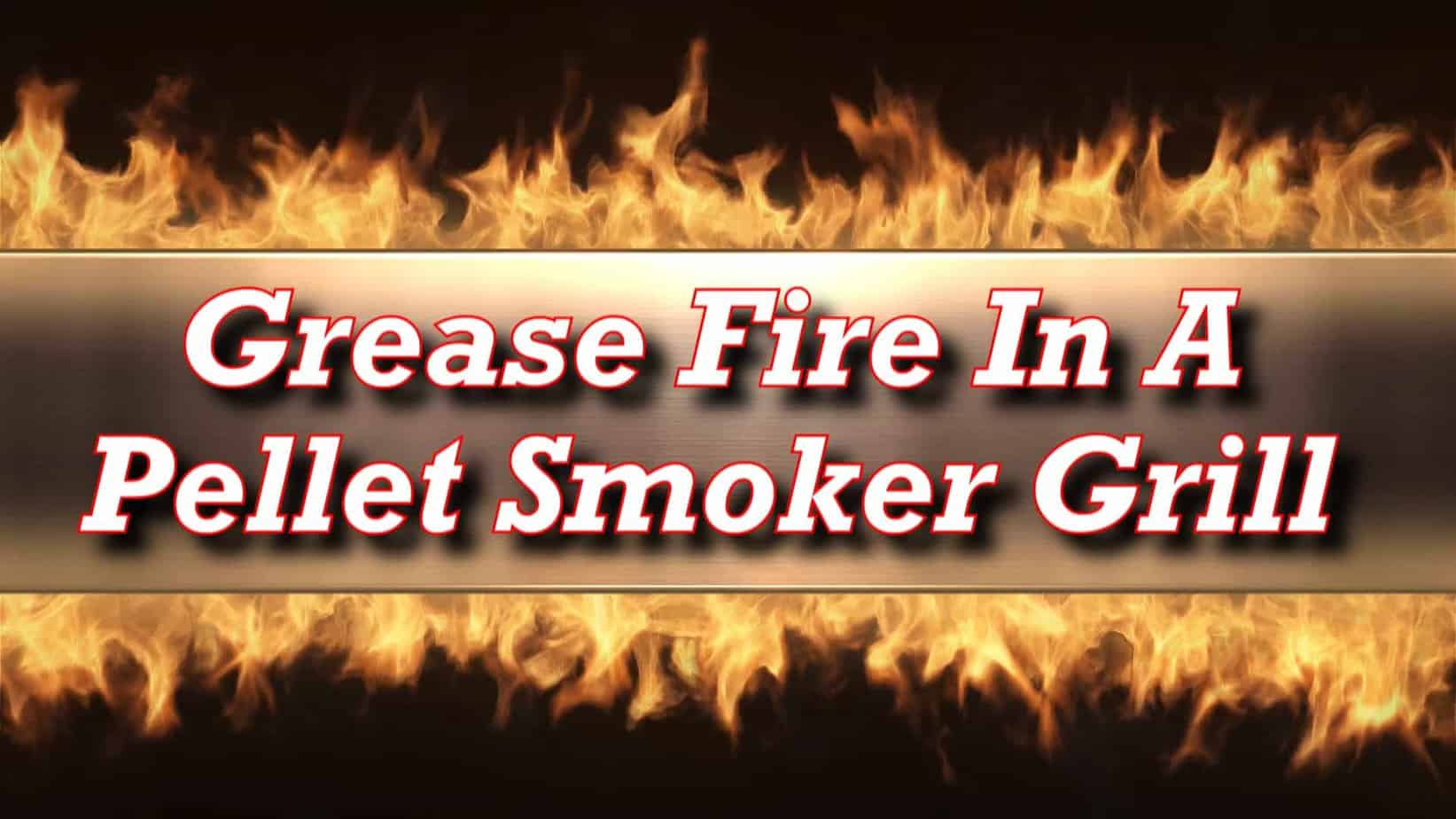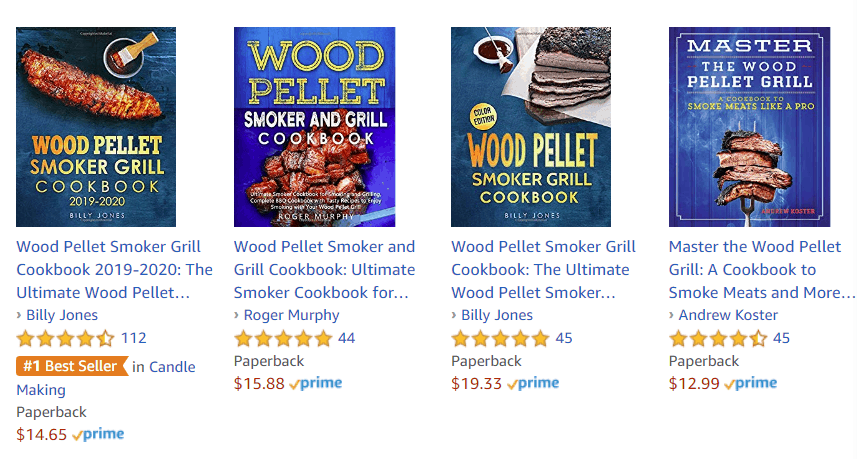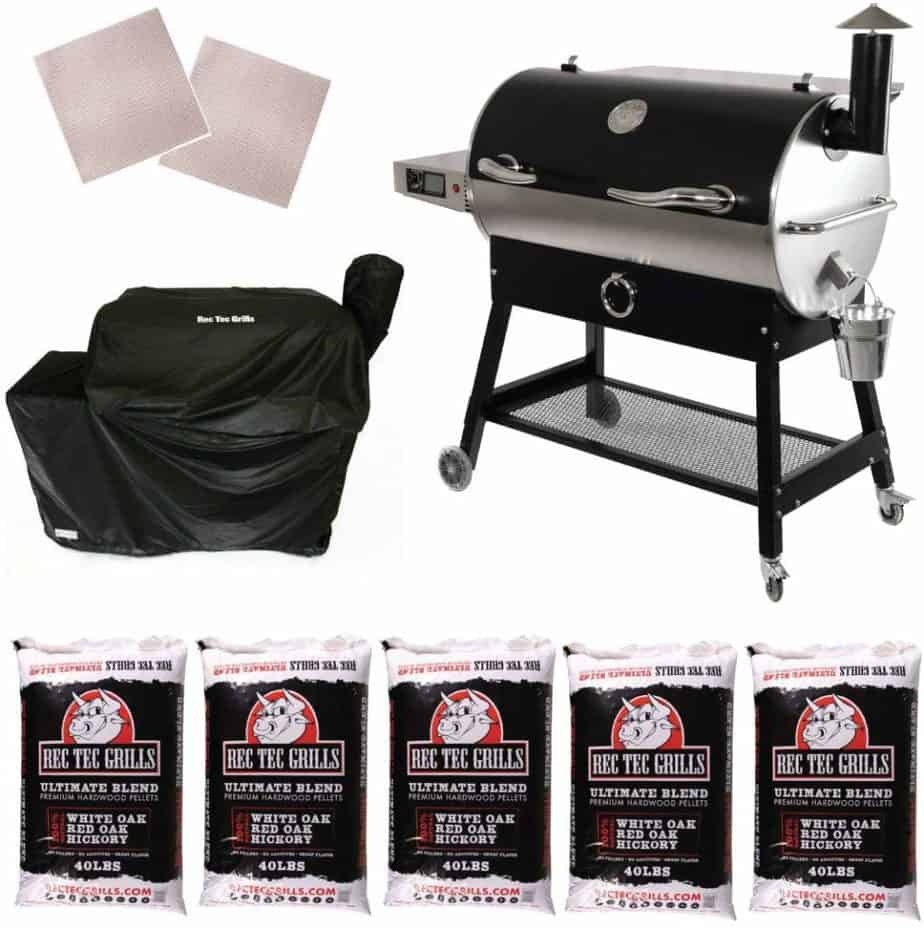About 2 weeks ago, I was smoking St. Louis style ribs in my Pit Boss Copperhead Series 3 Vertical Smoker. Then I pulled the ribs out, cranked up the heat to 450 and planned to cook a pair of Iowa Port Chops. It takes a while for the heat to go from 250 to 450, but when it got up to temperature and just before I put the chops in, we saw the digital readout had an error message. When I opened the door, Flames leaped out. Yikes! That was completely unexpected! We closed the door, unplugged the unit, and rolled it gently out of the way. The fire roared on till it died out. Fortunately, I have an Austin XL that was standing by. I believe the problem was an accumulation of grease in the drip/water pan that caught fire.
Grease fires in any type of grill – pellet, gas, charcoal, doesn’t matter – is typically the result of grease or grease fumes igniting when in close contact with fire. It’s not some freak thing it’s just what can happen. It’s why you should keep your grill or smoker, especially any drip pan areas, clean. It’s also why you should keep your grill a safe distance away from your house, trees, or any combustible materials.
Are Pellet Grills A Fire Hazard?
Let’s attack this head-on: Pellet Grills and Smokers are no more hazardous than other types of grills, smokers, or campfires. It comes down to the operator and properly maintaining your pellet grill. Grease or “meat juice” as I prefer to call it, is usually flammable. And if that flammable grease collects near a flame, guess what? Fire. And if there’s a lot of grease buildup, you’re going to get a lot of fire. It’s a good idea to clean out your drip pan frequently.

Do Pellet Grills Flare-Up?
Pellet smokers and grills can flare-up but so can any grill. It’s not unique to pellet grills. This goes back to flammable materials near a fire. Grease is flammable and grills have fire inside when you’re cooking. If there’s a lot of grease near the fire it’s likely to catch fire and flare-up. It happens no matter what kind of grill you’re using.
Most pellet grills are designed to draw grease away from the fire or firebox and into a drip bucket where it can be disposed of.
Vertical Smokers don’t typically have the same ability. Grease falls straight down into a water pan that also serves as a drip pan. There usually isn’t a drip catch to an outside bucket. The drip pan should be emptied out frequently. This is where I dropped the ball.
I hadn’t cleaned out my drip pan and lots of grease had collected in it. Even though a metal drip pan and a metal firebox protector separated the grease from the flame, the vertical smoker was 450° degrees and that’s plenty hot enough to catch the grease fumes and then the grease itself.
According to TheKitchn.com, A grease fire happens when cooking oils becomes too hot. Oils first start to boil, then they’ll start smoking, and then they’ll catch on fire. Most vegetable oils have a smoking point around 450°F, while animal fats like lard or goose fat will start smoking around 375°F. This is also why I haven’t had a problem when I smoke because those temperatures are much lower (180°-250° usually).
Are Pellet Grills Safe?
I think we’ve addressed this, but in case you’re still not sure, yes, pellet grills are safe. They are as safe as any other grill. They require the same amount of common sense as any other fire breathing appliance inside or outside of your house you might use.
I’ve been grilling and smoking with pellet grills for over 5 years and this was the first time I had a surprise fire like this. I had a lot of fire on my Austin XL when I grilled up a tomahawk steak over direct flame, but it was manageable. Really fatty meats will give you a) more grease; b) more fire. Pay attention to the amount of grease that accumulates in your grill or smoker and clean as often as you need to.
What Do You Do When A Grill Is On Fire?
First, Never pour water on a grease fire. Major no-no! Water will make the whole matter much worse. Plus you’re likely to harm your pellet smoker grill and get things wet that shouldn’t get wet including pellets. Wet pellets are useless and when they dry become powder. Yuck.
Second: Close the door or lid to cut off the oxygen supply. Fire needs oxygen to survive and the more oxygen, the larger the flame.
Third: Unplug the grill to kill the igniter and the fan near the firebox that creates the convection-cooking process.
Forth: If the fire is just not dying out, smother it with baking soda or salt. Baking soda releases CO2 and salt draws the heat out of the fire, which helps to extinguish flames quickly. It may take a large amount to do the trick, so keep plenty handy.
Fifth: If all else fails, go for the fire extinguisher.
Close The Door Or Lid On A Grease Fire
This was our simple solution. We closed the door, unplugged it, and rolled it away from the house. 5 minutes later it was all but out and the crisis was over and thank God it happened before I put meat in it. No loss of life or meat. A good day!
Understanding how grease fires get started takes the fear out of it. If you keep your drip pan clean you’re likely to avoid a grease fire altogether. Closing the door and unplugging the grill or smoker will usually do the trick. Then just let it burn out.



